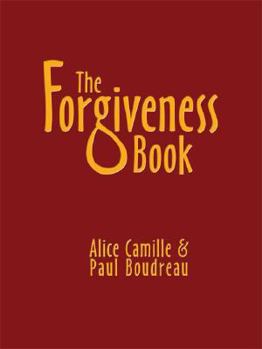The Forgiveness Book: A Catholic Approach
What is forgiveness? Why is it so hard to forgive? In The Forgiveness Book: A Catholic Approach, award-winning authors Alice Camille and Paul Boudreau address these questions and many more by... This description may be from another edition of this product.
Format:Paperback
Language:English
ISBN:0879463562
ISBN13:9780879463564
Release Date:January 2008
Publisher:ACTA Publications
Length:110 Pages
Weight:0.35 lbs.
Dimensions:0.2" x 5.4" x 7.5"
Customer Reviews
3 ratings
Review of the Forgiveness Book
Published by Thriftbooks.com User , 15 years ago
This is an excellent book that shows you the areas where you least expect unforgiveness lies. Very interesting and easy reading. Very enlightening.
To let bygones be bygones is a simple concept, yet difficult for many to do.
Published by Thriftbooks.com User , 15 years ago
To let bygones be bygones is a simple concept, yet difficult for many to do. "The Forgiveness Book" lives up to its title, as it offers a wealth of solid advice on how to forgive. In addition to helping readers understand and embody forgiveness, "The Forgiveness Book" also evaluates instances when something simply shouldn't be forgiven. Sure to be of interest to Christian readers. "The Forgiveness Book" is especially recommended for church library collections.
Thought-provoking reflections
Published by Thriftbooks.com User , 15 years ago
Camille and Boudreau's book tells us up front that forgiveness "has to be chosen... is the flipside of free will...is the only sure way for followers of Jesus to put their faith into practice." It also lists seven things forgiveness isn't, including forgetting and letting someone off the hook. The chapter on what to do when we are ready to forgive describes the sacrament of reconciliation as five ritual steps more like a circle than a staircase. "We arrive where we began: in the knowledge and absolute assurance that our forgiveness is already achieved." The first three steps, conviction, confession, and contrition, awaken us to the need for forgiveness and prepare us to incorporate it into our lives. The fourth step is compensation; the fifth is correction, through which "we come full circle in the acceptance of forgiveness." A chapter devoted to the Catholic concept of forgiveness turns to the creation story to explain why the choice for sin is "so grotesque and its consequences so apparently outsized and disastrous." We see Adam and Eve suffering as a result of their disobedience. Through the concept of reward-and-punishment, we may conclude that their punishment came from God. On the other hand, we may recognize that the "immense collateral damage" they endured was a logical result of their choice. The authors provide examples to support that interpretation. The first depicts a child being flattened by a steamroller while playing in the street despite his mother's warnings. Actions of the child, not the mother, led to the disaster. Next comes a list of cause-and-effect Old Testament events involving Cain, Abraham, Isaac, Jacob, Moses, Samson, David, Solomon, and finally the entire Chosen People. All their leaders had to do was listen to God's word as told by the prophets, but they ignored the warnings and followed their own path. "Like the kid playing in the street against his mother's orders, the result is that Israel got run over by its enemies and packed off into captivity." The conclusion is that God might not have to "go after us" for our sins. The consequences of sin are often punishment enough. In addition to these and similar thought-provoking reflections on forgiveness, Camille and Boudreau provide an appendix containing an examination of conscience; prayers of contrition; and bible verses, books and films on forgiveness.





